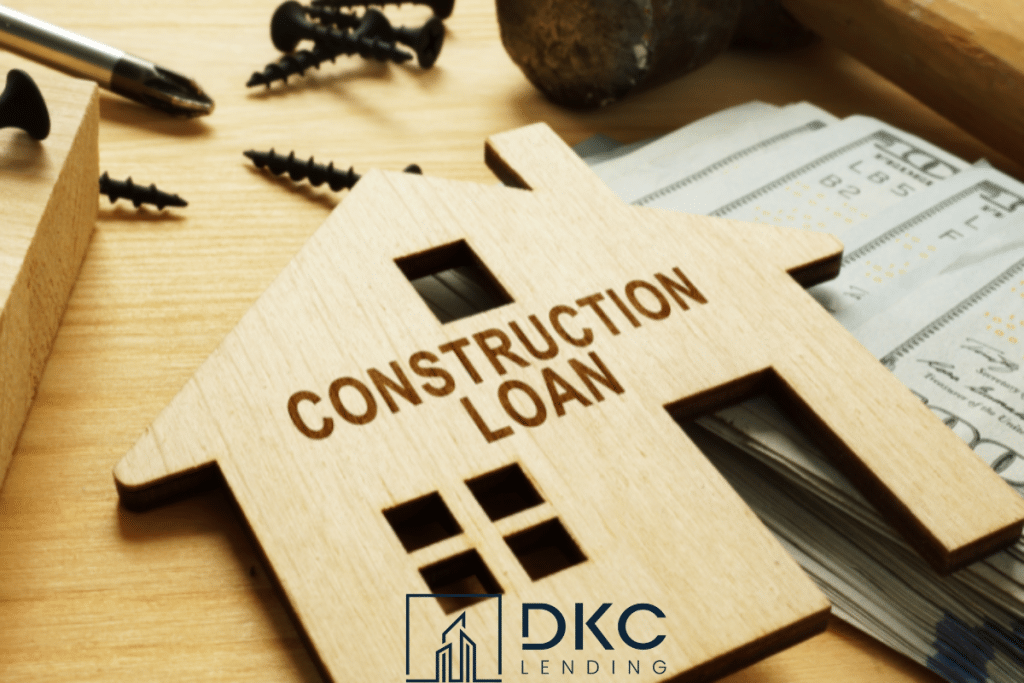In uncertain real estate markets, launching a new construction project can seem like a bold move. But for investors who recognize emerging demand or identify undervalued lots, it is an opportunity to build value from the ground up. The challenge? Accessing financing quickly enough to seize those opportunities before they are gone. Traditional lenders are notoriously slow and rigid when it comes to new construction, especially in markets facing volatility. Banks often require extensive documentation,
long approval timelines, and high borrower qualifications. That is where hard money loans come in. They offer speed, flexibility, and funding based on the project’s potential—not your credit history or income documentation. In this blog, we explore why hard money loans have become an essential tool for
residential investors who are ready to break ground, even when market conditions are tough.
Challenges with Traditional Construction Loans
Slow, Cautious Underwriting. Banks scrutinize every detail before issuing a construction loan. That includes your experience, blueprints, budget, credit score, reserves, and projected sales comps. This process can take weeks or even months, by which time that perfect lot or market opportunity may be long gone.
Strict Borrower Requirements. Conventional lenders generally only offer construction loans to borrowers with high credit scores, full-time income, low debt ratios, and development experience. That excludes many residential investors, even those with strong track records in value-add projects or rehab properties.
Rigid Draw Schedules. Traditional construction loans disburse funds in phases after third-party inspections. If there are delays or surprises, and there usually are, your project could stall while you wait for the next disbursement.
Large Down Payments. Most banks require at least 25–35% down on new construction loans. That ties up investor capital and limits your ability to fund multiple projects at once.
In tough markets, these hurdles can stop an otherwise promising project in its tracks. But hard money loans offer a different path.
The Hard Money Advantage for New Construction
Fast Funding When Timing Matters. Hard money lenders understand that real estate moves quickly. Their underwriting focuses on the value of the land and the projected value after construction—so they can fund deals in days, not weeks. Investors can move forward while others are stuck in paperwork.
Asset-Based Lending Model. Instead of focusing on your credit score, income history, or tax returns, hard money lenders look at the value of the asset and your construction plan. This opens the door for newer investors, self-employed borrowers, or anyone sidelined by conventional criteria.
Flexible Terms to Fit the Project. Construction timelines vary. Some projects can be completed in a few months, others take a year or more. Hard money loans can be structured to match your expected project length, with interest-only payments during construction to manage cash flow.
Control Over Your Capital. Hard money loans often offer higher loan-to-cost ratios, allowing you to fund more of the project with borrowed capital. That frees up your own cash to cover unexpected expenses, or to fund multiple projects at once.
Adaptable to Market Conditions. Markets shift. Construction delays happen. Material costs fluctuate. Hard money lenders can provide flexibility that traditional lenders cannot—especially during economic downturns or periods of high-interest rate volatility.
Case Study: Launching a Profitable New Build in a Challenging Market
Mateo, a residential investor based in Florida, found a buildable lot in a transitioning neighborhood where home values were beginning to rise. He had a trusted contractor, strong demand indicators, and a vision for a three-bedroom single-family home.
Despite his experience with renovation projects, banks were unwilling to lend for new construction due to his self-employed income and the market’s recent instability. Mateo reached out to a hard money lender, who focused on the value of the land and the after-construction value.
Within a week, he secured the loan, broke ground immediately, and completed construction in eight months. The home sold above list price to a retail buyer looking for new inventory in a tight housing market. The project delivered a six-figure return, and Mateo is already planning his next build with the same lender.
Strategic Advantages of Hard Money for New Builds
Secure Deals Before the Market Shifts. When opportunity strikes, you cannot wait for traditional approval timelines. Hard money allows investors to act quickly on land acquisitions and get to construction while prices and materials are still favorable.
Leverage for Greater Profit Potential. Because hard money loans can fund a higher portion of the project cost, investors can build more with less personal capital, increasing ROI and spreading capital across multiple builds.
Better Fit for Speculative Construction. In transitional or emerging neighborhoods, traditional lenders often back away due to uncertainty. Hard money lenders are more comfortable funding speculative projects if the exit strategy and valuation are strong.
Reliable Exit Options. Once the project is complete, investors can sell to retail buyers or refinance into long-term loans based on the completed home’s appraised value. Hard money loans provide the bridge to get there.
Key Considerations Before You Build
Total Project Budget. Hard money loans typically carry higher interest rates and shorter terms than bank loans. Include interest costs, loan fees, and contingencies in your budget to ensure profitability.
Construction Timeline and Exit Plan. Most hard money loans are 12 months. Make sure your timeline for completion and sale or refinance lines up—and build in time for delays or permitting issues.
Permits, Plans, and Team. Have your permitting and contractor strategy lined up before you apply. Lenders want to see a solid plan, even if they are not requiring traditional documentation.
Reputable Lending Partner. Not all hard money lenders are the same. Work with a lender that knows your market, communicates clearly, and offers the support and speed you need.
Conclusion
New construction offers an incredible opportunity for residential real estate investors, especially in markets where inventory is tight, and demand remains strong. But traditional financing can stand in the way, particularly when market conditions are unstable or slow-moving.
Hard money loans eliminate those roadblocks. By offering fast approvals, asset-based underwriting, and flexible terms, hard money lenders empower investors to build when others hesitate. Whether you are a seasoned developer or an investor transitioning from rehabs to new builds, the right financing can help you break ground with confidence.
At DKC Lending, we specialize in helping residential investors finance new construction projects with speed, transparency, and expertise. If you are ready to turn your next lot into a high-return investment, our team is here to help you build with certainty—even in uncertain markets.


